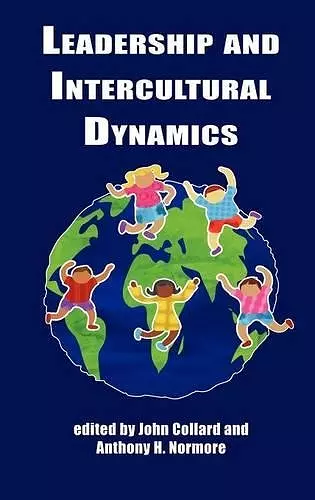Leadership and Intercultural Dynamics
Anthony H Normore editor John Collard editor Betty Merchant editor
Format:Hardback
Publisher:Information Age Publishing
Published:15th Jan '09
Currently unavailable, currently targeted to be due back around 16th April 2025, but could change

The work will explore issues related to educational leadership in various settings in the 21st century. It will argue that the context for leadership within many nation states and international scenarios involves interaction between multiple and diverse social cultures. A further proposition is that the dominant leadership theory and discourse in the past reflects forms of western hegemony and mono-cultural assumptions drawn largely from the Anglo-American worldview. It will argue that such frameworks have limited validity in multicultural societies such as Australia, Britain, Canada, Europe and the USA and with indigenous communities within such nations. These societies contain significant populations which do not share the core values which inform established leadership practice and institutional paradigms in such nations. The consequence can often be insensitivity towards non-mainstream cultures, inappropriate structures, failed interventions and alienation of individuals from major institutions and traditions. Another proposition is that as more developing nations increase in affluence and view education as a key economic strategy, they become increasingly exposed to western discourses about leadership and management. Whilst acknowledging that western traditions have much to offer, there is a danger that this can involve forms of cultural imperialism whereby local traditions are ignored or subjugated. There is a need for developing nations to recognise and value the traditions and practices from their own cultures and assess the extent to which they are compatible with borrowings from other nations. Such processes require a sophisticated degree of reflective analysis to determine potential compatibilities and conflicts. This is an alternative to unmediated cultural borrowing, cloning, and hybridization. Western leadership scholars who work in such contexts have some responsibility to address this interaction instead of blithely offering practices and recipes from their metropolitan world views. The final proposition is that there is a need to develop models and practices for intercultural dynamics which are responsive to intercultural complexity. When these are thoroughly developed there will be clear implications for education. The unique features of this book include; / It introduces a new theoretical perspective on leadership and intercultural issues which builds upon the previous work of cross-cultural theorists from previous decades in educational leadership discourse / It will explore the three primary contexts for leadership and intercultural interaction; with indigenous communities in nation states, with multicultural...
ISBN: 9781607520078
Dimensions: unknown
Weight: unknown
364 pages